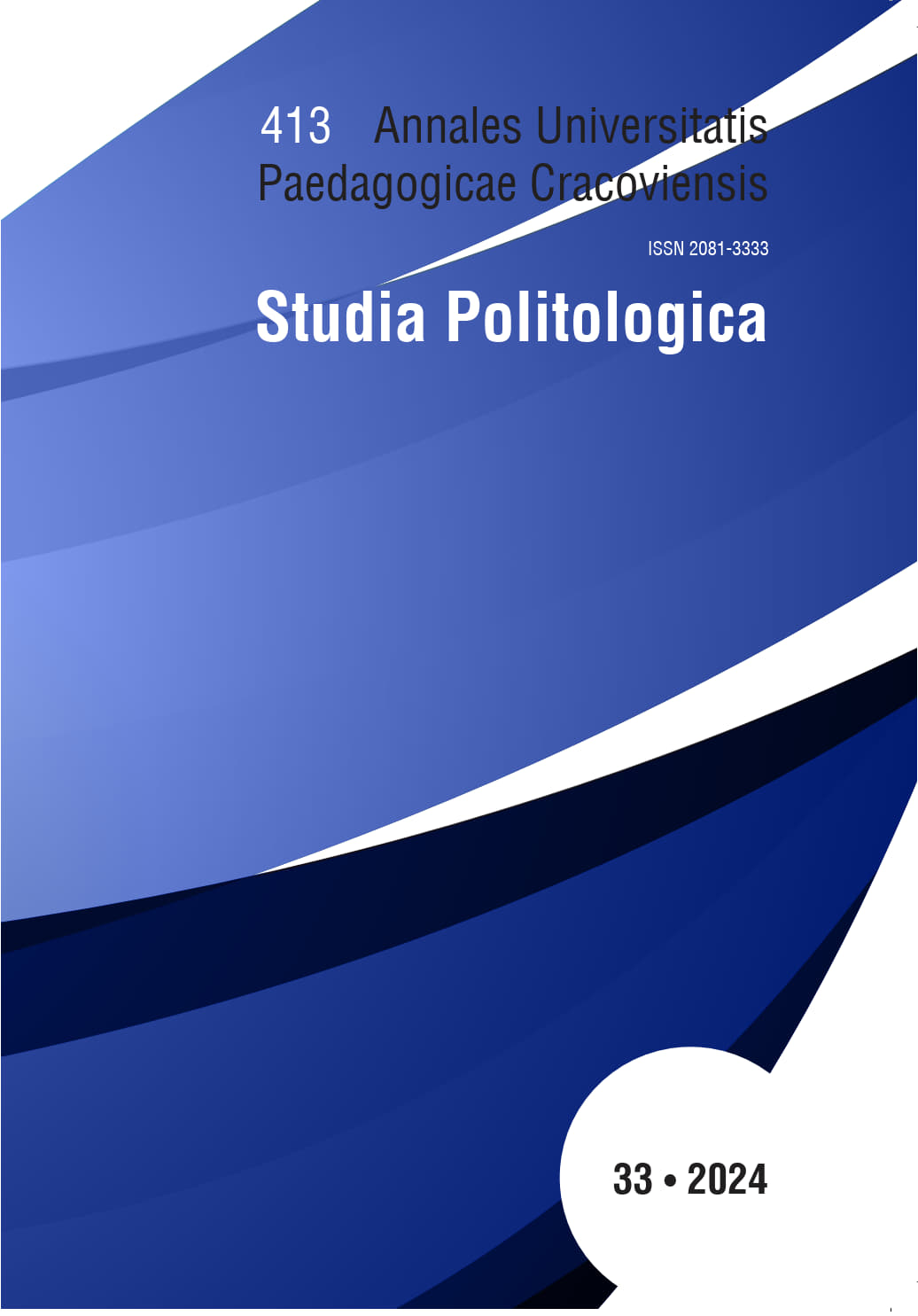Institutionalization of Cross-Border Cooperation in the Field of Ecological Safety and Flood Protection on the Bug River: The Example of the Activities of the Polish-Ukrainian Commission for Border Waters
Instytucjonalizacja współpracy transgranicznej w zakresie bezpieczeństwa ekologicznego i ochrony przeciwpowodziowej na Bugu: Przykład działań Polsko-Ukraińskiej Komisji ds. Wód Granicznych
DOI:
https://doi.org/10.24917/20813333.33.10Słowa kluczowe:
border river, institutionalization, cross-border cooperation, Polish-Ukrainian Commission for Border Waters, rzeka graniczna, Bug, instytucjonalizacja, współpraca transgraniczna, Polsko-Ukraińska Komisja Wód GranicznychAbstrakt
The article analyzes the role of the Bug as a border river in shaping security in border areas, in particular, theoretical issues related to the analyzed problem are presented and a catalog of threats related to the location is selected along state borders. However, the starting point is the characteristics of the Bug River, in particular its cultural, social, economic, technical and, of course, ecological importance. The text aims to present the institutional role of the river, which is a natural separation of Poland, Belarus and Ukraine. From the beginning, many connections between these countries were pointed out, resulting from the location of the Bug River as a natural barrier, some of them concerned and still concern matters related to the management of border waters and their monitoring in connection with the risk of flood or pollution. The last aspect very well emphasizes the need to establish institutional bodies for border rivers. Therefore, the study decided to focus on the role of cross-border cooperation in the ecological area through the prism of the functioning commissions for border rivers, with particular emphasis on the activities of the Polish and Ukrainian sides. Based on materials available on the websites of both bodies and other existing sources, the aim was to show the genesis of cooperation and analyze the current effects within the operating institutions.
W artykule przeanalizowano rolę Bugu jako rzeki granicznej w kształtowaniu bezpieczeństwa na obszarach przygranicznych, w szczególności przedstawiono zagadnienia teoretyczne związane z analizowanym problemem oraz dokonano wyboru katalogu zagrożeń związanych z położeniem na granicach państwowych. Punktem wyjścia jest jednak charakterystyka Bugu, a w szczególności jego znaczenie kulturowe, społeczne, gospodarcze, techniczne i oczywiście ekologiczne. Celem tekstu jest przedstawienie instytucjonalnej roli rzeki, która stanowi naturalny rozdział Polski, Białorusi i Ukrainy. Od początku wskazywano na liczne powiązania między tymi krajami, wynikające z położenia Bugu jako naturalnej bariery, z których część dotyczyła i nadal dotyczy kwestii związanych z zarządzaniem wodami granicznymi i ich monitorowaniem w związku z ryzykiem powodzi lub zanieczyszczeń. Ten ostatni aspekt bardzo dobrze podkreśla potrzebę powołania organów instytucjonalnych dla rzek granicznych. Dlatego w opracowaniu postanowiono skupić się na roli współpracy transgranicznej w obszarze ekologicznym przez pryzmat funkcjonujących komisji ds. rzek granicznych, ze szczególnym uwzględnieniem działań strony polskiej i ukraińskiej. W oparciu o materiały dostępne na stronach internetowych obu podmiotów oraz inne istniejące źródła, starano się pokazać genezę współpracy oraz przeanalizować obecne efekty w ramach funkcjonujących instytucji.
Pobrania
Opublikowane
Numer
Dział
Licencja
Redakcja przyjmuje do druku teksty oryginalne, wcześniej niepublikowane. Treść czasopisma jest dostępna na licencji Creative Commons (CC-BY-NC-ND 3.0 PL)
Licencja ta zezwala na wykorzystanie materiałów opublikowanych w czasopiśmie w celach niekomercyjnych np. komentarza, krytyki, informacji, archiwizacji, nauczania lub prowadzenia badań, z poszanowaniem aktualnie obowiązującego prawa autorskiego (ustawa z dnia 4 lutego 1994 r. o prawie autorskim i prawach pokrewnych Dz.U. 1994 nr 24 poz. 83 z poźn. zm.). Zgodnie z wymogami licencji, konieczne jest dokładne podanie źródła cytowania lub parafrazowania oraz zachowanie tekstu w oryginalnej postaci (zakaz tworzenia utworów zależnych).

